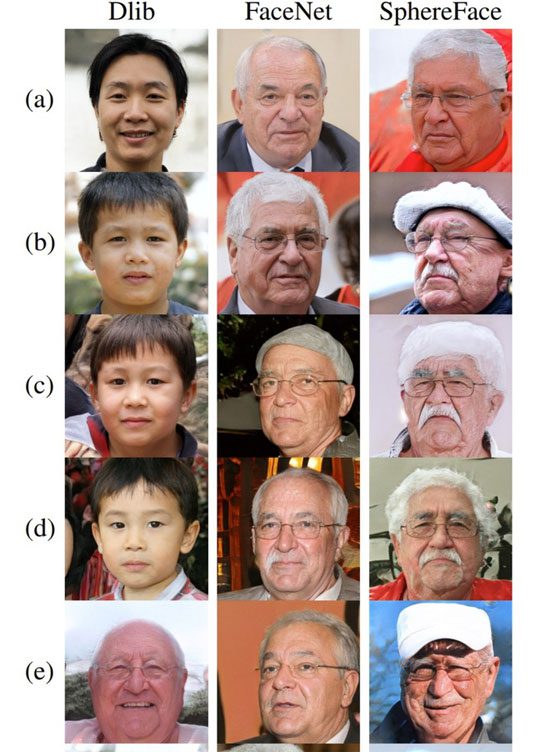A group of researchers in Israel has announced that by using AI, they can deceive most biometric facial recognition technologies.
Facial recognition technology is increasingly being utilized on personal devices as well as in industry. However, a team of computer scientists from Tel Aviv University in Israel has discovered a method to bypass most facial recognition systems without needing to know the victim’s face.
In a recently published study, they reported using a method called “master face”, which employs AI to create a synthetic face pattern designed to fool recognition systems. This synthetic face can then replicate the identifying features of many other individuals, thereby creating a “master key.”
According to the published results, the research team was able to generate a “master face” that could represent 40% of the world’s population using just 9 faces synthesized by the AI StyleGAN system.

Master Face images generated by StyleGAN achieved the highest success rate in the experiments. (Photo: Tel Aviv University Research).
“Our results indicate that facial recognition methods are highly vulnerable to attacks, even without possessing any information about the target. Some anti-spoofing techniques are implemented to enhance the security of the recognition systems. We combined several other techniques to bypass these defenses,” the scientists shared.
The study indicates that the vulnerability of most systems lies in their reliance on many predefined feature sets to identify users. Consequently, the team created a compatible face pattern. In essence, this attack succeeds because it generates numerous replicas that resemble a majority of users.
These patterns are created using the StyleGAN algorithm, an AI model capable of generating digital images of non-existent faces. In a single test, they successfully unlocked over 20% of 13,000 faces in the dataset from the University of Massachusetts. Other tests yielded even higher results.
Furthermore, the researchers stated that their product could connect with deepfake technology, which has the potential to deceive certain recognition methods.
The study highlights the risks associated with using facial recognition for social media accounts. Hackers could exploit this method to steal user data.
Although this research has not yet been peer-reviewed, it serves as evidence of the many potential risks of facial recognition technology that users should be aware of. Additionally, the fact that these tools sometimes operate inconsistently, along with some technology companies asserting that their products are not yet fully optimized, contributes to concerns about the safety of facial recognition security remaining an unknown factor.





















































